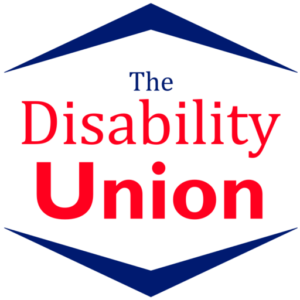
The different cultures that surround disability is as wide and varied as any other culture, though many don’t realize. Just as American culture is different from British culture, for example, Deaf/Hard of Hearing culture is different from the culture of having Cerebral Palsy. What’s interesting still, is we can also break up the culture of disabled vs. non-disabled people, and their perceptions of disability. There are stark differences, and they’re not always good. What are the ways disabled culture and non-disabled culture differ, specifically when talking about disability? How can these cultures, specifically the culture of non-disabled people, be harming those with disabilities? This article is based off of the findings in Nothing About Us Without Us: Disability Oppression and Empowerment by James L. Charlton, chapter 4: Cultures and Belief Systems.
What Defines Culture?
Culture is the idea that your life is influenced by not only your beliefs and the way you think, but the way others around you think. Your religious beliefs, your eating habits, even the media you consume are all factors of your culture. Your culture affects who you interact with, what clothes you wear, what you eat, the language you use … the list goes on and on. These factors not only affect society as a whole, they shape it.
Because of the cyclical nature of culture affecting society and vice versa, culture can change over time. Think of the way people dressed 20, 30, even 40 years ago. Now look at the way we dress today. Same with words we use, songs we listen to. Sure there are some things that are the same, but there are major differences too.
The Culture of Disability
Disability culture is weird in that it’s experienced to some degree by everyone but each person experiences it differently. For disabled people, everything they do has some relation to their disability. They might steer clear of certain foods because it’s too difficult to spoon up. Maybe they wear certain fabrics because other ones cause sensory overload. The specifics are different, but there seems to be an understanding that we as disabled people do things/don’t do things a certain way because of our disability.
The culture of disability for non-disabled people is what I find most interesting. Quite often, though luckily less and less as times change, attitudes toward disability are pejorative, paternalistic, and sometimes even hypocritical. As I’ve addressed in previous blogs, there’s a paradox of sympathy and admiration that I don’t think I’ll ever understand. Comments from strangers are either “you’re so brave for doing [XYZ] in your condition” or “I could never do what you do.” While these seem like compliments, and indeed are coming from a place of genuineness, they’re hypocritical. Charlton writes: “Given the intrinsic abnormality or awfulness of disability, anyone living a ‘normal’ or ordinary life must be extraordinary.”
Culture, Oppression, and Paternalism
I mentioned paternalism early, and this is an important factor into how the non-disabled culture views people with disabilities. Paternalism, as defined by dictionary.com means:
the system, principle, or practice of managing or governing individuals, businesses, nations, etc., in the manner of a father dealing benevolently and often intrusively with his children.
Basically, the rules are made by those in power with little regard for those who are not. In this case, able-bodied people thinking they need to have control over how disabled people are cared for in order to give us their version of the best life. This paternalism can be subtle, especially when you’re not looking for it, but it’s there. Sometimes, the people responsible aren’t even aware they’re doing it.
Paternalism is built on not having the whole experience. Able-bodied people think they know what it’s like to be disabled, but they can’t. Much like I don’t know what it’s like to be English, because I’ve never been to England. Sure, we speak the same language and I have a handful of British television shows I watch; but that doesn’t make me a citizen of England. Maybe you broke your leg and had to use crutches or even a wheelchair for a few weeks. You didn’t get the full experience. You didn’t experience fighting with insurance over care hours or paying for life-saving medical equipment every six months.
Over the years, and with the growth of the internet, more people with disabilities have been able to share their narratives and give a more rounded view of disability. There have been a few collective movements, if small, to try and shed light on how ableds’ view on disability is skewed. Most notably and my favorite is #abledsareweird on Twitter.
The Sources of Attitudes Towards Disability
The paternalistic nature of abled people didn’t start from nothing. We are somewhat able to trace it back to its source, if esoterically. Charlton states that there are many areas that affect this, but there are three main pillars that shape the paternalistic culture surrounding disability: body/image, religion, and language. Over the next few articles, we will go over these different aspects and discuss how they contribute to the paternalistic view of disability in culture today.


